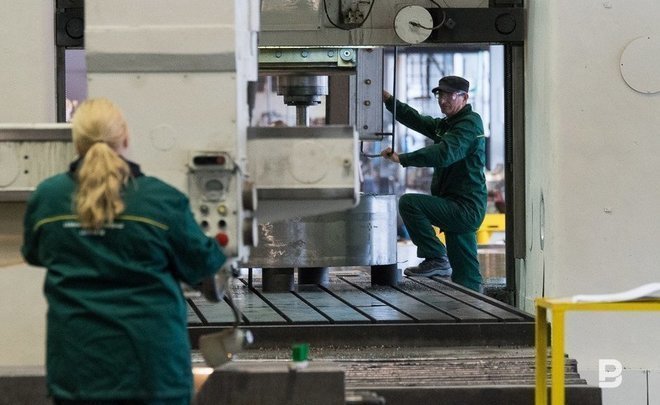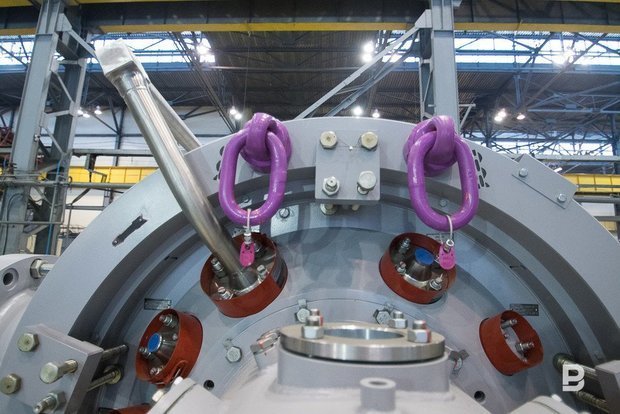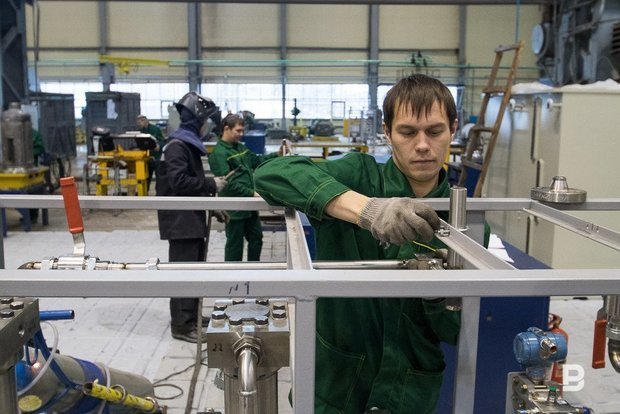Roman Panasenko: ‘The development of metallurgy and own production is a question of Russia's survival’
Where companies from the real sector of the economy can find investments for development and expansion today

The economic crisis and Western sanctions pressure have crippled Russian industry, but this turbulence has pushed most companies to search for new markets, access to the markets of friendly countries and import substitution solutions on their own. In these conditions, state support measures for domestic industrialists have turned out to be very useful: tax concessions, credit holidays, subsidies and others. Many players do not want to abandon plans to expand production, but where can enterprises from the real sector of economy find investments for development today? Roman Panasenko, the head of the production and engineering company Metalwork, discusses this in the author's column for Realnoe Vremya.
Import substitution
With the help of preferential loans from the Industrial Development Fund in Tatarstan, for example, thanks to the modernisation of production, the production of zinc lamellar coating screws from Russian raw materials has doubled. The specialised coating increases the wear resistance of fasteners and makes them more resistant to corrosion. The fund approved 148 million rubles for this project. The production capacity has increased by 50%.
Another 300 million rubles have been allocated to Mordovia to purchase modern equipment to increase the productivity of workers of the Ruzaevsky Chemical Engineering Plant, which produces freight cars for various purposes — from tank cars to platforms. Thanks to the development of production capacities, the company plans to increase annual production by 500 wagons. They will help with investments in the development of production and domestic fans. For example, at the Lada-Fest plant, they are preparing for the independent production of components for their products. Moreover, we are talking about high-power systems that are used for fire-fighting purposes, for example, in tunnels. Previously, the necessary components were manufactured in France, but now the products will become 100% domestic. The Izhevsk Experimental Mechanical Plant will purchase equipment for smelting bolts, screws, nuts and studs. These fasteners are used in the assembly and installation of oil and gas equipment.

Priority projects
The Expert Council of the Industrial Development Fund at the beginning of last year approved investments of 5,3 billion rubles in the development of the industry, including projects to modernise production facilities with the help of tooling.
Despite the difficult economic conditions, there was a positive trend in the development of Russian industry in 2022 — the industrial sector grew by 2% in six months. Among the regions, the leaders in this indicator are the Republic of Tyva (137,3%), the Republic of Dagestan (129,0%) and the city of Sevastopol (128,6%).
The Industrial Development Fund is one of the strategic funds initiated by the Ministry of Industry and Trade of the Russian Federation. It happened 9 years ago. Over the years, with the assistance and support of the fund, 532 industrial enterprises producing various products in 65 regions of the country have been created from scratch and modernised. The fund specialises in preferential loans for the development of an industrial enterprise from 1% per annum.
Not with a single iron
Unlike the late USSR, modern domestic industry is not only oil, gas, space and military-industrial complex. Over the three decades that have passed since the collapse of the industrial superpower, the new generation of people has grown up, for whom it is important to have a choice in stores and not to “import substitute” baby diapers with gauze.
By the way, about diapers: they are also produced in Russia. The Cotton Club plant successfully operates in the Moscow region, which has been approved a preferential loan of 500 million rubles for the purchase of equipment that will allow the production of cotton pads, sticks, wet wipes and baby diapers. The new line will produce about 1,000 diapers. Production equipment also helps in solving environmental problems: for example, the asphalt concrete plant, thanks to the modernisation of production facilities, will be able to minimise the harmful impact on the environment by reducing negative emissions by three times.

About labour productivity
The development of industry is impossible today without attracting and developing human resources. No matter how ultra-precise, smart and nano-extra-super-technological the production line of any plant is, human control must be maintained.
Unfortunately, according to analysts, since the beginning of the noughties, up to a quarter of employees have left various industries. And the average labour productivity has increased by more than 40%. Mainly due to high technology. Industry today is not just an economic factor. The development of metallurgy and its own production is a matter of survival of Russia as a state. That is why it is vital to pay attention to the personnel policy of the real sector of the economy.
Reference
The author's opinion may not coincide with the position of the editorial board of Realnoe Vremya.